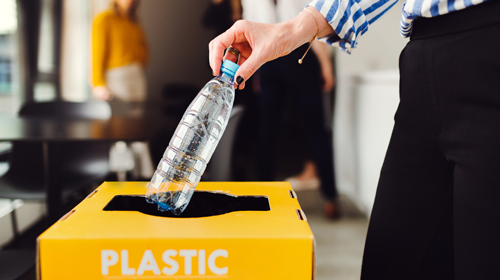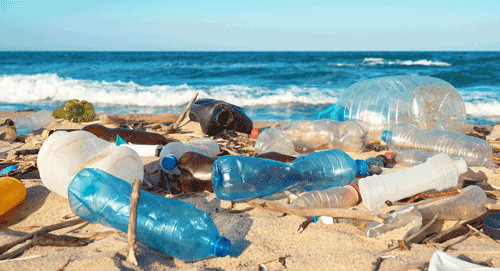Recycling: Reducing our footprint
Recycling plays an integral part of Australia’s waste management system, ensuring valuable resources are repurposed for further use and diverting hazardous materials away from landfill.
During the 2016-17 financial year, around 31.7 megatonnes of materials were recycled in Australia, including masonry materials, paper and carboard, hard and soft plastics, metals, glass, organics, textiles, leather and rubber, and e-waste such as computers and televisions.
Recycling and Waste Management in Australia
In 2018, China’s ban on imported recyclable waste threw the Australian recycling industry into the spotlight. The new restrictions decreased Australia’s export of recyclable wastes to China by 40%, causing recycling companies to stockpile or no longer accept recyclable wastes.
In response to these changes, the Australian Government developed a framework for improving the country’s waste management through the National Waste Policy and National Waste Policy Action Plan. This led to the introduction of legislation to Parliament which will implement a ban on the export of waste plastic, paper, glass and tyres, and will be fully operational by 2024.
The new legislation will also replace the existing Product Stewardship Act 2011 and include improvements to encourage companies to take greater responsibility for their waste.
Recycling and Waste Management by State and Territory
State and territory governments are also implementing various measures to improve recycling and waste management, including:
- The establishment of a 10-year plan in Victoria, which will implement a 4-bin waste and recycling system for all households, introduce a container deposit scheme, and create a new waste and recycling Act and waste authority
- The development of South Australia’s new Waste Strategy 2020-2025 and Waste and Resource Recovery Infrastructure Plan
- Queensland’s $100 million investment into the Resource Recovery Industry Development Program to divert waste from landfill and reduce stockpiling, and the development of the Waste Management and Resource Recovery Strategy
- The establishment of a container deposit scheme in October 2020 and the Waste Avoidance and Resource Recovery Strategy 2030.
Reducing Waste and Improving Recycling in the Workplace
Recycling is beneficial for both the environment and the economy. Therefore, it is ideal for workplaces to implement measures to reduce their waste outputs and increase recycling of waste products. These include:
- Implementing separated bins: Ensure your workplace has separated bins for recycling and general waste
- Knowing what goes in your bins: Some local Councils may not accept certain wastes for recycling. Research what can and cannot go in your recycling and waste bins to avoid contamination
- Conducting an environmental audit: Businesses should have an independent environmental audit conducted to assess their environmental impact, identify priorities and ensure they are compliant with environmental regulation. Check with your jurisdiction’s EPA for guidance
- Buying recycled products: Consider using recycled paper, stationary, plastic products and other items for your business
- Recycling soft plastics: Soft plastics cannot be placed in normal commingled recycling, but there are collection points that will recycle these plastics
- Utilising tools: Your jurisdiction’s EPA, and other government departments and organisations, often provide advice and tools for businesses to manage their waste output. These can be helpful to educate and drive change

References
